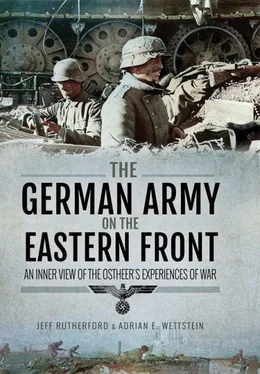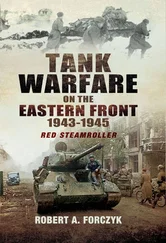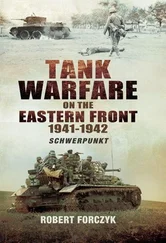3. It can be made quite clear to our people that we are fighting in the struggle with the Soviet Union for our most elemental existence, not only in a national, but also in an individual sense. Naturally, these concepts must be translated for the simple man and be made familiar to them that we are fighting for the existence of our house, home, and family.
In this great struggle, two extremes clash against one another that are irreconcilable. Here, is a struggle about Weltanschauungen , about two types of seeing and living life.
IV
The officer must orient himself and his soldiers towards the final decision.
We must constantly keep in sight of our soldiers that the campaign against the Soviet Union is not like that against Poland, against Norway, against France, or in the Balkans, but rather, that this war is, in reality, completely different. At the same time, we must say to them again and again what it means to have achieved success, such as the German Wehrmacht can offer, against such an armed, fanatically led and bestial-fighting opponent. We must explain to them what the occupied territories mean for the future of Germany and for the life of our people, so that even the sceptical or half-hearted recognize that the rigorous concentration of all strength for final victory has never been more necessary, but has also never been more rewarding, as it is now in the hour of the final decision.
Modern wars do not last for decades, the weaker must be smashed under the force of the stronger’s better weapons. It all depends, however, on these weapons being used by men whose bravery, enthusiasm for combat and will to persevere cannot be exceeded by any enemy.
As for the rest, history teaches that in a war victory invariably goes to the one who, next to the greater military efficiency, carries the firmer belief in the righteousness of his cause and is willing to ruthlessly commit to this conviction.
In this enormous struggle to be or not to be, there is no compromise solution. There is only an increase in the sense of duty and the cold will to win or to die. Everyone must understand: fate is hard and merciless; it inclines toward those whose inner strength and confidence is stronger. We can and we will win, but in this enormous struggle it needs an enormous exertion of force. No one can be excluded; everyone is involved. No one can exist ‘outside of it’.
V
The personal example of the officer stands out front.
The best instruction content-wise and methodologically or the best-led discussion remains groundless when the deed doesn’t follow these persuasively spoken words and this deed is called: example . According to a word of the previous world war, dying as an example is therefore a piece of it. An officer, who teaches a national socialist solution and then deviates from it in practice has forfeited his belonging in my corps just as anyone who today sees in National Socialism an imposed form of intellectual-spiritual attitude.
For his soldiers, the officer is there daily, hourly. I expect that during my troop visits I will receive from every company, platoon, and group leader complete answers to the last question regarding the mental attitude, conduct, family background, district of origin and other such things about every single soldier in his unit. The long nights and the dreary solitude in bunkers offer the best opportunity to dutifully concern oneself with that.
In the evening, the officer also always belongs in the circle of his soldiers where he can speak informally with them. I expect considerably more success from such discussions than from such social evenings where true camaraderie loses out. True camaraderie has absolutely nothing in common with the shallow social gathering of the masses; it proves itself in the inner unity of life and death.
The soldier has a pronounced sensitivity to these things and if his superior possesses leadership values or not. He wants to be led, clearly and fairly; he also bears severity, whose necessity he especially recognized in this war as already being beneficial many times. But he also has a legitimate right that one accepts his worries and problems. I would like to know the correctly educated and led German soldier who breaks his loyalty.
One thing that is self-evident is that one cannot demand more effort and sacrifice from the soldiers than the leader himself is prepared to give. When a Leutnant or NCO indeed gets up later than the soldier, takes liberties that the simple soldier does not have, and doesn’t exceed them in conscientiousness and conception of duty, then the matter is rotten.
The greatest concern is for the young replacements, which for the most part consist of ethnic Germans. These people are capable of being educated and must be turned into good Germans. A special education and training appears necessary that, next to the return to Germandom, aims for the absolute dependability in soldierly respects. […]
VI
Implementation of National Socialist education
1. As leader of his men in battle, the officer is also the bearer of national socialist education. This constitutes the foundation and prerequisite for his training work, which has proven itself under heavy fire and in long deployment. […] There is no splitting of military and spiritual leadership .
The harder and longer the war is, all the more adamantly arises the question about the war’s meaning. All the more clear, however, is that the war could not have been won alone with the indispensable iron discipline of the old army. ‘The soldier of today’s army wins with the weapon and with the Weltanschauung .’ (From my special order Nr. 3 from 6.3.42).
Schörner’s order contained numerous threads that ran through the German army’s experience in the east. He repeatedly emphasized the importance of officers in ensuring that their men knew why the war was essential to Germany’s future. The hardness and the strength of the individual’s will that had become such vital components of the army’s self-understanding permeated the order. And finally, the conviction that Nazi beliefs were the only means to ensure a soldier’s confidence in the war effort meant that the melding of military and National Socialist values and ideas that Blomberg had first pushed for in the 1930s now became standard practice for at least some German field commanders and their units. This was supplemented by the introduction of the National Socialist Leadership Officer in December 1943. Hitler, believing that the army’s officer corps still refused to submit fully to the Nazification of the army, ordered the creation of this position; similar to Soviet commissars, they were to provide the ideological framework of the war to the rank and file. So, despite the efforts of commanders such as Schörner, the army’s loss of sovereignty and independence was clearly noticeable in this area.
During its war with the Soviet Union, the German army approached the peak of its powers as a military force and underwent a steady grinding away of both its combat strength and its principles until the army that surrendered to the Allied powers in May 1945 was scarcely comparable to the one that invaded in June 1941. This documentary collection has attempted to show how the German army appraised its own situation and what attempts it made to salvage it after it became apparent that the Soviet invasion had developed completely differently from previous campaigns. During the opening months of the war, the German army displayed all of the hallmarks that made it such an effective fighting force. Led by an officer corps that valued decisiveness, boldness and aggression, the army utilized speed and mobility in a blitz campaign designed to defeat the Soviet Union quickly. Initially, the German army appeared destined to achieve its goals; encirclement battles at Bialystok, Minsk and Kiev led to some one million Soviet prisoners of war and numerous smashed and mangled Soviet armies. Even during the summer months of great victories, however, it was clear that the army faced numerous serious obstacles and that the German way of war was threatened from multiple directions. And once the German onslaught was stopped and the war degenerated into one of attrition, the chances of a German military victory decreased rapidly.
Читать дальше






![John Stieber - Against the Odds - Survival on the Russian Front 1944-1945 [2nd Edition]](/books/405234/john-stieber-against-the-odds-survival-on-the-russian-front-1944-1945-2nd-edition-thumb.webp)





